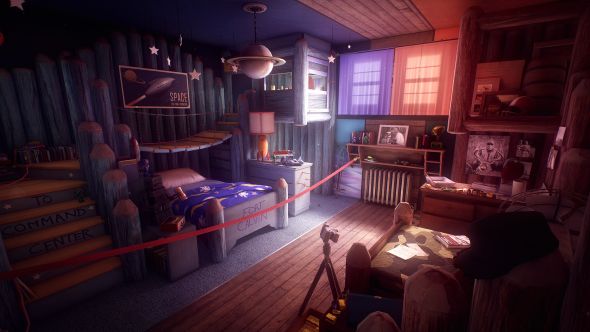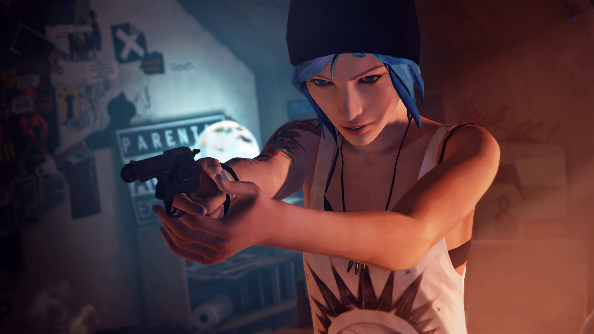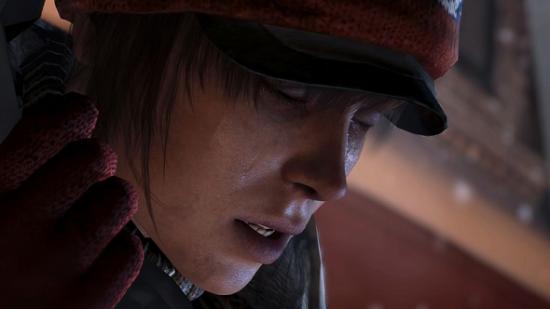Earlier this year, Heavy Rain and Beyond: Two Souls lead game designer Caroline Marchal decided to branch off on her own. In another life, she could have stayed at Quantic Dream and now been working on Detroit: Become Human. In another she could still be at Sony, a job she left recently to strike off on her own. But just as with modern, choice heavy games, if Marchal could go back and do things differently, each path would have ultimately have led to the same place: she would end up working on narrative games.
Related: upcoming PC games.
“It’s the genre I love, the genre the people I work with love,” Marchal tells me. “We want to offer a really broad and mature narrative game. Hopefully we will break through into mainstream entertainment with it. We’re aiming at the TV audience – people who watch Netflix or HBO. We’re hoping to bring that quality to gaming, with complex characters and accessible yet deep gameplay.”
In the press release for Marchal’s new studio, Interior Night, the designer mentions both Breaking Bad and Fargo as touch points for what the studio hopes to achieve. Interior Night are looking to match the tone of those inspirations, giving their stories room to breath over a long period of time – just like a TV show – and adding a varied cast of complex, grounded characters, all wrapped up in a complex web of relationships.

Marchal finds Breaking Bad and Fargo interesting specifically because of how they portray crime as this escalating, addictive thing that snowballs until suddenly you are forced to just ride it to its conclusion. “That’s a good narrative drive,” Marchal explains. “Then on top of it there are lots of likable or dislikable characters, but they all have an edge, they all have flaws, and they are all very interesting. I like dark characters. My favourite endings are where everyone dies.”
To grab that mainstream TV audience, Interior Night do not want the game to get in the way of the story. Just like the promise of pulling on a VR headset and grabbing a pair of motion controllers, they want most mechanical elements to slip away thanks to intuitive design. After all, seasoned players are conditioned by the language of videogames – to go towards the light, to look for the flapping piece of fabric signifying a climbing point, and to always go left at the start of a side-scroller’s level in case there is a secret hiding there.
“What we are trying to do is really focus on the story, and gameplay and story have to work together – they’re intertwined,” Marchal says. “We think of any given situation from a story and a gameplay perspective. What’s interesting for the players? What is going to happen in their head? How are they going to feel in every moment? It’s a holistic approach, and it needs to be interactive all the time. The cinematics are a big part of it, but we never lose focus of the gameplay elements. You need to give players agency, it’s important.”

The focus of the experience, then, will be the decisions you are making, and the thoughts that are swirling around in your brain. Marchal wants players to lean on their real-world knowledge, not videogame competency, to solve problems. But that is not to say that more traditional narrative game crutches won’t make an appearance.
“Regarding quick-time-events, I think when they are done well they’re really interesting,” Marchal says. “And when you use them sparsely they can be really useful to keep the audience on the edge of their seat. That said, it’s not going to rely on QTEs. I can’t tell you much more, but I can say streamlined mechanics doesn’t mean simple.”
Though I’m promised that Interior Night’s approach will be different, Marchal applauds Life is Strange and What Remains of Edith Finch’s QTE-free designs, adding that she was “blown away” by the latter. Marchal is less impressed by the recent output of the genre’s most prolific exponent, however. “Some of the Telltale games feel a bit like you’ve been there, you’ve seen it,” she answers. “It’s well done, but they feel a bit more like a product, compared to Life is Strange or Edith Finch.”

However, Marchal feels that those problems are mainly down to team sizes. Telltale are a large studio with a huge workload, of course, but their licensed games feel increasingly like they are built to a template as a result.
Marchal, it turns out, has no particular love for existing templates. Though she may have worked with Quantic Dream head David Cage – a man who famously gave a talk on how using more polygons meant a stronger emotional connection for the player – she does not believe that tech has any part to play in impacting a player’s emotions.
“Emotional response comes from the story and, to some extent, the performance,” Marchal says. “When you look at games like Life is Strange and Firewatch, they don’t rely on traditional triple-A values. You don’t have to be high-fidelity, hyper real, to reach people.”

The biggest barriers to this connection, Marchal believes, are bad writing or intrusive gameplay mechanics that get in the way of the story, not how many pixels are housed within your protagonist’s jowls. Interior Night will still tackle difficult and high-minded subjects, but they are confident that they won’t need the budget of a first-party triple-A studio, or the support of Sony, to do so.
“I think Quantic has been very brave to talk about difficult issues,” Marchal says. “Videogames need to do that. They can engage the audience in a different and sometimes super personal way. With videogames, we have opportunities to address complex topics differently. In the right context and done well, it can be really empowering and insightful. It’s a very personal thing. It’s about what interests you as a writer. It’s about choosing topics you understand, and things you will be able to provide an interesting perspective on.”
As for what those things are, what Marchal and her team feel uniquely positioned to tackle, we will have to wait for an announcement some time next year. Between now and then, Interior Night have a lot of choices to make. Given Marchal’s penchant for bleak conclusions, one thing is for sure: it is going to be as dark as night time in a cave. An Interior Night, if you will.
